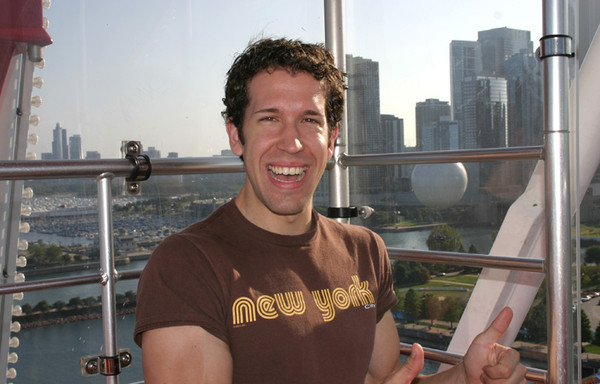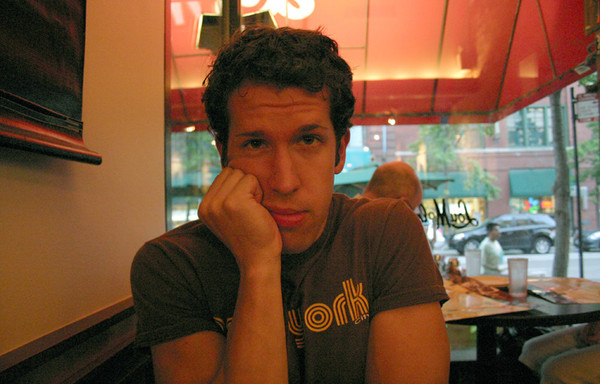Stuff from August, 2010
This is the archive of tumbledry happenings that occurred on August, 2010.
This is the archive of tumbledry happenings that occurred on August, 2010.
My sister (who just got her PhD in applied mathematics) Katy sent me a great article about a talking, learning 5-year-old intelligence research parrot named Alex (parrot) - Wikipedia:
He called an apple a “banerry”, which Pepperberg thought to be a combination of “banana” and “cherry”, two fruits he was more familiar with.
Three dimensional television is the dumbest thing I have ever heard of. It’s not the glasses that bother me. It’s the fact that the extra dimension is superfluous: two dimensions are perfectly evocative of reality. I believe that adding a third dimension just gives the TV networks and movie studios an opportunity to charge more for their broadcasts and films.
The Giving Pledge, where billionaires pledge to give over half of their worth to charity. Warren Buffet, who is giving over 99% of his worth to charity:
I’ve worked in an economy that rewards someone who saves the lives of others on a battlefield with a medal, rewards a great teacher with thank-you notes from parents, but rewards those who can detect the mispricing of securities with sums reaching into the billions. In short, fate’s distribution of long straws is wildly capricious.
2 years. Here are all my classes so far:
A little bit excessive, I think.
Holy crap-a-moly, this song is intense. Cosmic Love by Florence and the Machine. I think its from that popular movie series about werewolves or vampires or something… can’t say the pop-culture ties dilute its awesomeness.
The Atlantic has a nice article titled The Great Stock Myth, which explains the consequences of the (likely) crappy stock market returns over the next 10 years. When the effects of these poor returns are compounded, the demands put on people to save money for retirement increase dramatically. Incidentally, there’s a nice fact about the Bush administration in here:
Someday, it is my dream to live on a sunny hilltop where I can see the stars at night. I think I’ll feel content. Right now, I can’t see the stars at night, but I still feel content. I guess it’s not about where you are, but who is there with you.
Carl Sagan: Wanderers (Carl Sagan Tribute Series, Part 3):
Every one of those worlds is lovely and instructive. But, so far as we know, every one of them: desolate and barren. Out there, there are no better places—so far, at least.
I rode the West River Parkway up from the St. Paul Lifetime via Ford Parkway and WOW what a path! Darn thing is practically level for a few miles and smoother than an ice rink that’s just been Zambonied. More grip than ice, though.
How to Choose a Watermelon - NYTimes.com. Sad that I need a newspaper for this information, but here we go:

Skyscrapers from the ground look tall!

Tried to go on an architectural tour — but at $too much per person, we’ll wait until we return with more funds.

Quote on the side of the Chicago Tribune building.

Fountains are amazing!

Fountains are puzzling!

Hi, Mykala!


At the AMAZING Lou Malnati’s Pizzeria, a few blocks from our hotel in Chicago.

Sorry about this picture of me!

We got the special crust for 75 cents extra.

Things I love right now:
The “Regrets of the Dying” have quite a bit of overlap. Let us learn from them now, early, in this lovely piece by Bronnie Ware:
When to Make the First Offer in Negotiations (Via HN):
How extreme should your first offer be? My own research suggests that first offers should be quite aggressive but not absurdly so. Many negotiators fear that an aggressive first offer will scare or annoy the other side and perhaps even cause him to walk away in disgust. However, research shows that this fear is typically exaggerated. In fact, most negotiators make first offers that are not aggressive enough.
Roy F. Baumeister asks Is There Anything Good About Men? (Via HN.) He begins with this wonderfully interesting idea: biological differences result in a different payoff for risk-taking behavior. For men, taking risks, striving, fighting other men can payoff brilliantly in terms of reproductive success, but the same actions don’t help women much:
People avoid discussing religion or politics in polite company because those discussions cut through all the layers of pretense in which we shroud ourselves. These two topics, one focused on the divine and the other on the human, throw open the windows and shutters of a person’s mental house, allowing all the neighbors to scrutinize another’s deepest secrets, thoughts and prejudices. So, religion and politics are a wonderful way to quickly understand a person’s true character. My understanding is that this is not the purpose of polite conversation.
The Wilson Quarterly: America: Land of Loners? by Daniel Akst (via HN) describes the value of friendship, and the modern American man’s increasing refusal to maintain friendships. (Sidenote: I’m getting really sick of question-mark-titles. You either believe whole-heartedly in what you are writing and you are setting out to support it, or you are debunking a myth. You can’t launch a very effective piece of writing by saying “hey, maybe we could think this!”) This friendship-abondoning really made me feel rather sad because I’ve done a horse crap job of maintaining my friendships. I’m looking to improve that, salvage what I have left. Anyhow, on the whole, we don’t have people to talk to:
The milk is turning to slush in the fridge, which is odd, because the kitchen itself has been over 80°F for the majority of the day. Is the cause high humidity? Mykala has been pounding through a tremendous amount of end-of-semester work, and is currently right in the middle of another paper. Her perseverance amazes me. I can’t offer her much, other than moral support and shoulder massages. And (apparently) very cold milk.
A bit on George Kelly’s Personal construct theory from Wikipedia:
…each individual’s psychological task is to put in order the facts of his or her own experience.
Mykala, please correct me if I’m off base here, but here’s what I’ve got: as story-makers, we are constantly fabricating a thread to connect our isolated experiences into a life that makes sense. So, on a daily basis, we tell a story of ourselves to ourselves.